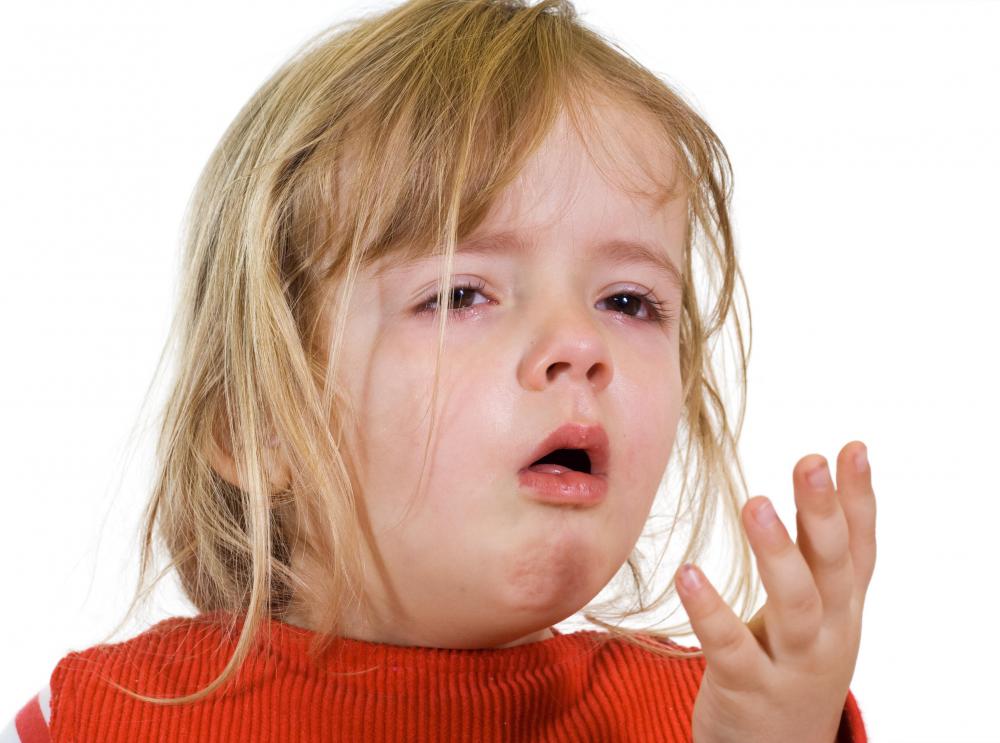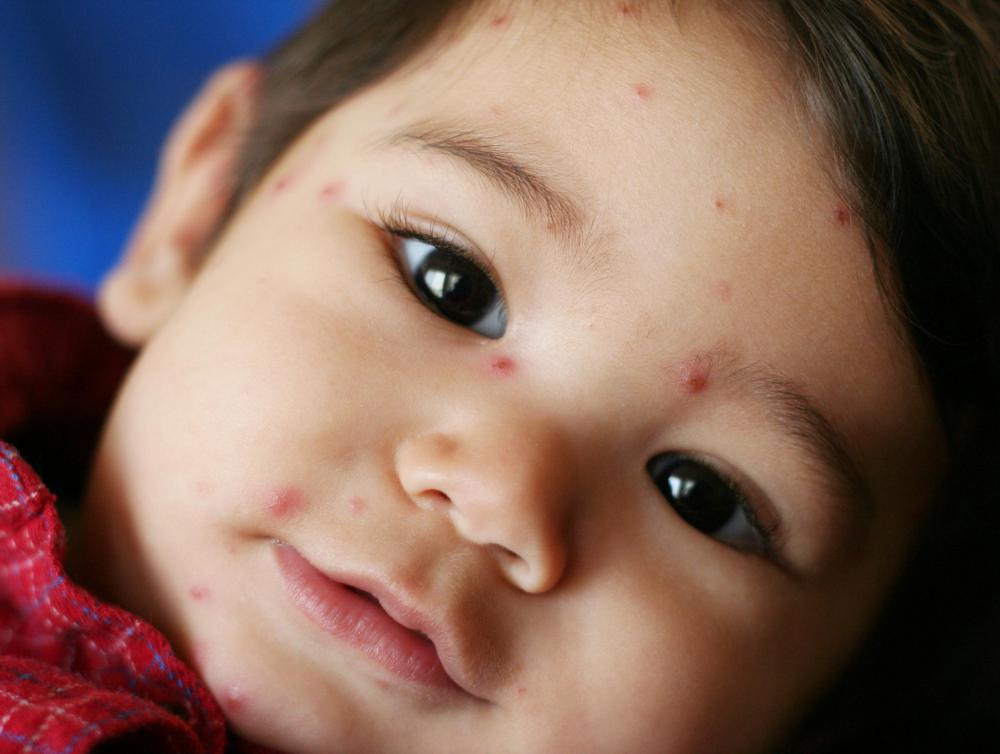At WiseGEEK, we're committed to delivering accurate, trustworthy information. Our expert-authored content is rigorously fact-checked and sourced from credible authorities. Discover how we uphold the highest standards in providing you with reliable knowledge.
What are the Immunizations my Child Should Receive?
Advances in medicine have allowed most of the developed world to eradicate the most deadly childhood diseases. Mass immunizations have been responsible for this victory, as the rest of the world attempts to implement programs to vaccinate its citizens. Some have said that vaccinating our population has been one of the biggest advances in public health since clean drinking water. Immunizations protect people by exposing them to a dead or weakened virus, which allows the body to develop immunity to it before one actually gets sick. Vaccinations have saved countless millions from death and disease.
Immunizations are important, because they not only protect the children receiving them, but also others around them and future generations. Every child who receives immunizations helps to eradicate a disease. The results are irrefutable: diphtheria, which used to kill about 10,000 people every year in the United States, is now nearly eradicated. In 1962, there were nearly 500,000 cases of the measles, and now there are less than 100 per year.

There are 13 diseases the Centers for Disease Control and Prevention (CDC) issues recommendations for vaccinating against. These include diphtheria, hib, rubella (German measles), mumps, pertussis (whooping cough), paralytic polio, smallpox, tetanus, hepatitis A and B, influenza (flu), pneumococcal disease and varicella (chickenpox). Children are inoculated against these diseases with nine different immunizations.
- DTaP: This immunization protects against diphtheria, tetanus and pertussis. What makes it different from a typical vaccine that contains a virus is that the components that vaccinate against diphtheria and tetanus are called toxoids, because they assist the immune system in developing protection against the subsequent toxins that a bacterial infection produces. The DTaP immunization comes in a series of five shots, administered at two, four, six and 15-18 months. The final dose is given at four to six years, and boosters are recommended every ten years.
- Hepatitis A: This vaccine contains an inactivated virus and is 94 to 100% effective for more than 20 years. It is administered in two shots at 12-13 months, with the second being given six to 18 months after the first.
- Hepatitis B: This is an inactivated form of the virus and is 98-100% effective for life. It is given in three doses, starting between birth and two months, one to four months and six to 18 months.
- Hib: This immunization is 95-100% effective and administered in three to four doses, depending on the brand. They are given at two, four, six and 12-15 months.
- Influenza: There are two types of influenza immunizations: the inactive, which is 70-90% effective, and the live type, which is administered as a nasal spray and is 87% effective. The vaccine is given on a yearly basis around October or November. The nasal spray is only given to children over five years old. After six months of age, children can get the flu shot every year, but the first dosage should be followed by a booster two to four weeks apart.
- MMR: This acronym stands for measles, mumps and rubella. It is a live vaccination that is effective for life. The two doses are administered at 12-15 months and four to six years.
- Pneumococcal Vaccine: This vaccine is inactive and protects against seven strains of the bacteria that cause the most serious illnesses. It is 90% effective and administered in four doses at two, four, six and 12-15 months.
- Polio Vaccine: This vaccine is given in four doses at two, four, six and six to 18 months. A booster is administered at four to six years.
- Varicella: This vaccine protects against chickenpox and is 70-90% effective. Some children or adults who have been immunized against varicella experience breakthrough infections with mild symptoms. One dose is given at 12-18 months.

Check with your child’s doctor about possible side effects of immunizations. When receiving immunizations, the child should be in good health — he or she may experience a mild fever and crankiness afterwards. While there are some opponents of vaccination, the medical statistics show that it is imperative for a child’s health and for the health of the greater population.
AS FEATURED ON:
AS FEATURED ON:



















Discussion Comments
anon76005 needs to learn how to read or else stop trying to deliberately misinform. The outbreak was in those who had failed to receive their second vaccinations and thus were not fully protected.
Get it right and stop trying to make people afraid! Vaccinations save kids.
The Centers for Disease Control and Prevention (CDC) reported that 89 percent of all school-age children who recently contracted measles had been vaccinated against the disease.
A spokesman for the Ohio Department of Health supplied the Dayton Daily News with these statistics: 2,720 cases of measles were reported in Ohio during a recent year. This figure was used in conjunction with the godfather ploy (an offer hard to refuse) when the following threat was made as well: "Get shots or forget seventh grade." What the official failed to mention was that more than 72 percent of these cases occurred in vaccinated people.(152)
This figure is comparable to other outbreaks around the country, where a majority of measles cases often occur in vaccinated children, "sometimes in schools with vaccination levels of greater than 98 percent." hmmm...
bet you think bacteria and viruses are a made up conspiracy too? so how is it that life threatening diseases such as the measles and polio have basically been eradicated in the US? did they just "go away" on their own? or do we just have stronger immune systems? the proof is that children (millions) in poor countries who don't have access to immunizations die from diseases we in America have the blessing to never have to deal with. thanks to vaccines. 'nuf said.
vacciations are a load of mullacky..its the government trying to control what we do with our children [snip]....vacciations weaken the immune system and then you can rely on the md to fix your child with a drug as he laughs all the way to the bank with his huge paycut from the drug companies..its all a scam....they are all in cahoots together on this issue.they don't have our best interest at heart they don't want you to be healthy.they would be poor if that happened.they have recently linked autism to the mmr vacciation...isn't that nice?
Post your comments